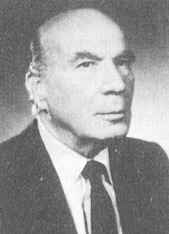Guido Carli
( central banker, deep state operative?) | |||||||||||||||||||||||||||||||||||||||||||||||||
|---|---|---|---|---|---|---|---|---|---|---|---|---|---|---|---|---|---|---|---|---|---|---|---|---|---|---|---|---|---|---|---|---|---|---|---|---|---|---|---|---|---|---|---|---|---|---|---|---|---|
 | |||||||||||||||||||||||||||||||||||||||||||||||||
| Born | 28 March 1914 Brescia, Italy | ||||||||||||||||||||||||||||||||||||||||||||||||
| Died | 23 April 1993 (Age 79) Spoleto, Italy | ||||||||||||||||||||||||||||||||||||||||||||||||
| Nationality | Italy | ||||||||||||||||||||||||||||||||||||||||||||||||
| Alma mater | University of Padua | ||||||||||||||||||||||||||||||||||||||||||||||||
| Parents | Filippo Carli | ||||||||||||||||||||||||||||||||||||||||||||||||
| Member of | Trilateral Commission | ||||||||||||||||||||||||||||||||||||||||||||||||
| Party | Christian Democracy (Italy) | ||||||||||||||||||||||||||||||||||||||||||||||||
Italian banker, economist, and Christian Democrat politician who attended three Bilderberg meetings just before or while Director General of the Bank of Italy, one in 1977 as President of Confindustria, and in 1987 before being appointed Minister of Treasury, where he was one the signatories of the Maastricht Treaty for Italy.
| |||||||||||||||||||||||||||||||||||||||||||||||||
Guido Carli was an Italian banker, economist, and Christian Democrat politician who attended three Bilderberg meetings just before or while Governor of the Bank of Italy, one in 1977 as President of Confindustria, and in 1987 before being appointed Minister of Treasury, where he was one the signatories of the Maastricht Treaty for Italy.
Background
His father was the prominent fascist sociologist Filippo Carli, who was member of the National Fascist Party since its origins, who wrote a famous essay on the theoretical basis of the fascist state (corporate state).
Education
He graduated in law from the University of Padua,
Career
He began his career in 1937 as an official at Istituto per la Ricostruzione Industriale, an Italian public holding company.
After an experience at the International Monetary Fund[1], he became president of Mediocredito from 1953 to 1956; then he became Minister of Foreign Trade in the Adone Zoli government[2], from 20 May 1957 to 2 July 1958, assuming an important role of reassurance of the international markets.
He was President of the Credit Consortium for Public Works (CREDIOP) and of the Credit Institute for Public Utilities (ICIPU) from January 1959 to August 1960; subsequently, in October 1959, he was appointed director general of the Bank of Italy.[3] He became its governor in August 1960, replacing Donato Menichella, while assuming the office of president of the Italian Exchange Office. He immediately called for greater consultation between central banks and, after the fluctuating trend of the Italian lira during the decade of the economic boom, was managing the effects of currency tensions coming from the United States, which culminated in the abandonment of the gold-dollar parity and with the Smithsonian Agreement.[4]
He remained in office until 18 August 1975, when he resigned. He was replaced by Paolo Baffi, his main collaborator — although the views were not always coincident — as general manager of the issuing institution since 1960. From 1976 to 1980, he was president of Confindustria.
He was elected Senator as an independent among the ranks of the Christian Democracy in 1983 and in 1987; in 1992, he was not re-elected. He was president of Assonime (Association of Italian Joint Stock Companies) from 1989 to 1991. He also was Minister of Treasury in the sixth and seventh Giulio Andreotti governments, from 22 July 1989 to 24 April 1992. During his mandate, he was one of the signatories of the Maastricht Treaty for Italy.
From 1 November 1978 to his death, he was president of the LUISS University of Rome, which in 1994 (one year after his death) changed its name to "LUISS Guido Carli".
Freemason
The journalist Ferruccio Pinotti has repeatedly attributed to the historian of freemasonry Aldo Alessandro Mola the information that Guido Carli was affiliated with the "covered" loggia Giustizia e Libertà (Justice and Liberty).[5][6]
Events Participated in
| Event | Start | End | Location(s) | Description |
|---|---|---|---|---|
| Bilderberg/1958 | 13 September 1958 | 15 September 1958 | Buxton UK | The 7th Bilderberg and the first one in the UK. 72 guests |
| Bilderberg/1965 | 2 April 1965 | 4 April 1965 | Italy Villa d'Este | The 14th Bilderberg meeting, held in Italy |
| Bilderberg/1975 | 25 April 1975 | 27 April 1975 | Turkey Golden Dolphin Hotel Cesme | The 24th Bilderberg Meeting, 98 guests |
| Bilderberg/1977 | 22 April 1977 | 24 April 1977 | Imperial Hotel Torquay UK | The 25th Bilderberg, held in Torquay, England. |
| Bilderberg/1987 | 24 April 1987 | 26 April 1987 | Italy Cernobbio | 35th Bilderberg, in Italy, 106 participants |
References
- ↑ Professor Guido Carli of the Italian Foreign Exchange Office, Has Been Elected an Executive Director of the World Fund, Our Washington Correspondent Reports. The Financial Times (London, England), Saturday, May 24, 1947; pg. 5; Edition 18,121.
- ↑ Italy's Foreign Trade and Balance of Payments. Guido Carli. The Financial Times (London, England), Tuesday, April 23, 1957; pg. 18; Edition 21,144.
- ↑ https://web.archive.org/web/20100416113811/http://www.bancaditalia.it/bancaditalia/storia/governatori/Carli
- ↑ EEC praise for Britain. From John Earle. The Times (London, England), Tuesday, Dec 21, 1971; pg. 16; Issue 58356.
- ↑ https://web.archive.org/web/20161201015309/http://www.granloggia.it/sites/default/files/doc/massoneria_fratelli_litigiosi_costretti_tregua.pdf
- ↑ http://ricerca.repubblica.it/repubblica/archivio/repubblica/2007/11/27/massoneria-fratelli-litigiosi-costretti-alla-tregua.html